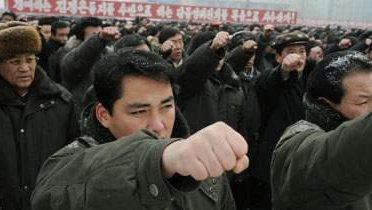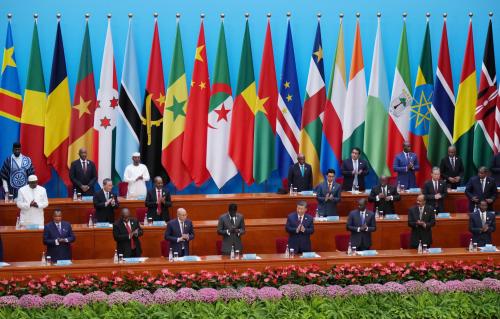Kim Jong-il’s death has dramatically changed the context of efforts to resume multilateral denuclearization talks with North Korea, removing from the scene the mastermind of its development of nuclear weapons. But did it also eliminate the one person who might have been able to end Pyongyang’s nuclear program? We will never know whether Kim, who exercised tremendous power during his 17-year reign, would finally have made the strategic decision to denuclearize North Korea. But we do know that his youngest son and successor, Kim Jong-un, will now face that decision. It will be a difficult, perhaps even impossible, step for a young, inexperienced, untried leader likely to be even more dependent on the military and on the nuclear and missile totems than was his father. Making the wrong decision could hasten the demise of his regime.
Kim Jong-il died just as U.S.-North Korean dialogue on restarting denuclearization talks seemed about to produce results. That bilateral dialogue will probably resume soon, and we should welcome it. Pyongyang needs the talks, and the forces that had compelled the DPRK to seek them have not changed. But if Six- Party denuclearization talks follow from the dialogue, the United States should ensure that the new North Korean leader and his inner circle understand both the benefits that would flow from ending the nuclear program and the damage that continued pursuit of nuclear weapons and long-range missiles would do to their country’s already bleak future. A strong and clear message, carefully and authoritatively delivered, could help shape the emerging leadership’s perceptions as they contemplate the survival of their regime.<>
Washington is justifiably skeptical about Pyongyang’s willingness to give up its nuclear program. Such skepticism could grow as the United States assesses the new North Korean ruler’s ability to alter his country’s nuclear fixation. Washington may even be tempted to try to “manage” the North’s nuclear challenge in the belief that actually resolving it has now become even more difficult, if not impossible. That would be a mistake and would only allow North Korea more time and opportunity to develop its nuclear and missile capabilities.
The United States should continue to give top priority to the ultimate and complete denuclearization of North Korea. At the same time, and in the short and medium term, it should pursue a package of interim steps that limits those elements of the North Korean program that create a current danger in Northeast Asia, as long as those steps bring us closer to the ultimate goal of complete denuclearization. Measures that merely sustain an empty diplomatic process should be rejected. To that end, Washington should create a dialogue process that maximizes prospects for achieving the denuclearization goal. This must include engaging the North Korean leader and his key advisers, who need to hear directly how denuclearization can help Pyongyang avoid further isolation, deindustrialization, and regime collapse.
Such an approach will incur risks for the United States and, at the end of the day, it may not succeed, but the one we have taken in the past has clearly not worked. The goal of denuclearization is more important than ever as we contemplate Pyongyang’s growing missile and nuclear capabilities and the prospect that they will threaten the American homeland in the not-too-distant future. The sooner we negotiate a deal with North Korea that will result in its complete denuclearization, or conclude that a deal is not negotiable, the better off we will be. If a deal is made, all parties win. However, even if a deal proves impossible, the United States will have obtained important clarity about the North’s intentions, an essential ingredient if tougher measures towards the North become necessary.
The Brookings Institution is committed to quality, independence, and impact.
We are supported by a diverse array of funders. In line with our values and policies, each Brookings publication represents the sole views of its author(s).




